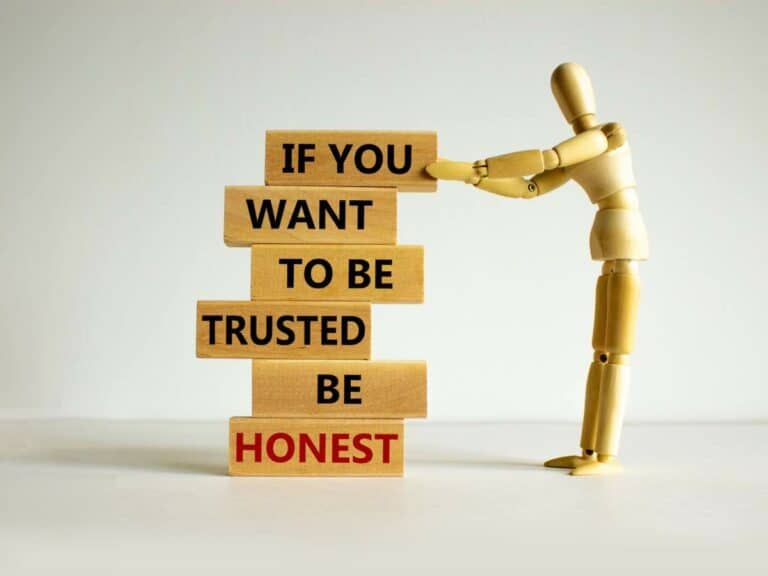Is Giving Your Wife or Husband a Lie Detector Test a Good Idea?
Now more than ever, getting married is easier. But staying married and happy is harder. Thanks to the internet, cheating has been simplified and even made addicting, too. And now you believe that your marriage is on shaky ground as a result of infidelity.
Should you get your other half to take a polygraph test to protect the relationship?
Asking one’s spouse to take a lie detector test to determine whether or not there was cheating can help reestablish trust, which is critical in a relationship. But it can also cause the examinee to lose trust in his or her other half for having to resort to a polygraph examination instead of taking his or her word for it.
If you are seriously considering getting in touch with a polygraph examiner who specializes in extramarital affairs, make sure that you keep reading this post first until the very end!

Extramarital Affair
Based on a Live Science report, research from the last 2 decades indicate that between 20% and 25% of married men cheat. On the other hand, between 10% and 15% of married women cheat.
The number of cheating spouses hasn’t changed in a long time.
What changed, however, is the attitude of people toward cheating. Based on surveys back in the 1970s, for instance, it was more common for married individuals to simply accept that their spouses cheated. These days, however, those whose partners have had affairs know that there are various options available to them.
A Health Testing Centers survey on the prevalence of cheating, as a matter of fact, revealed that more than half of relationships (54.5%) ended after one partner admitted to cheating.
According to a study conducted by the American Association of Retired Persons (AARP), up to 27% of divorces are caused by infidelity. With almost a third of all divorces being the result of cheating, an extramarital affair is a serious matter that needs to be resolved, especially if the goal is to keep the marriage intact.
There is no denying that honesty is the best policy. However, especially in a marriage, it doesn’t come without any consequences, which, in some instances, could mean a separation.
But it’s not all the time that a cheating spouse is willing to admit the wrongdoing.
A lie detector test, in some instances, can be administered in order to quietly verify the truth about accusations of cheating or sexual contact away from the family court. This is true since the result of a polygraph examination is not admissible in numerous jurisdictions — it cannot stand as evidence.
Moving Forward
Going past trust-related issues is not the same for every couple. So, in other words, what can work well for one husband and wife may not work at all for another.
Some individuals, as a matter of fact, may just be able to work things out by sitting down and having a heart-to-heart discussion. For this to work, however, both parties must agree for the betrayer to be completely honest and truthful and the betrayed one totally all ears and understanding.
Undergoing couples therapy may be the best solution for others.
Also sometimes known as couples counseling or marriage counseling (for married individuals), couples therapy is a form of psychotherapy designed to help partners improve their relationship. In the event of an extramarital affair, it’s something that can help in healing wounds and starting from scratch.
But then there are also people who can only move forward by knowing nothing but the truth, which couples therapy may not be able to provide if the other party has no plans whatsoever of disclosing everything.
In this case, a lie detector test may be necessary in order to commence the process of healing.
Having a polygraph test designed for infidelity, generally speaking, is best done as early as possible or as soon as the betrayer is ready for the truth to come out in the open. The right examiner for the job is one who specializes in administering polygraph examinations for couples.
Rebuilding Trust
There is no denying that a lie detector test can help determine whether a spouse is lying or not about having an affair. But many married couples wonder if it’s something that can help restore a broken trust.
If truth be told, a polygraph exam may or may not help rebuild faith and confidence.
One of the most important things that help keep a marriage strong and intact is trust. As a matter of fact, according to marriage counselors themselves, trust is an indispensable ingredient not only in building but maintaining a healthy marriage as well as a crucial element of any lifelong commitment.
Thanks to trust, you can be happy and fully and confidently invested in the relationship knowing that you are safe, secure and supported by your other half.
But whether or not a person can trust again after a spouse’s act of unfaithfulness is on a case-to-case basis. Some people can learn to trust again and hope that no cheating will ever happen once more. Meanwhile, others may have a difficult time regaining their trust in their spouses after a fling.
Needless to say, a lie detector test may or may not help save a marriage.
A polygraph exam, in some instances, may be all that’s needed, so that the couple may start giving the relationship another try. But on the other hand, there are times when it’s the only thing — a failed lie detector test result — that the betrayed party is waiting for in order to put the marriage to an end.
Before you schedule a polygraph examination, consider establishing the objective of seeking one so that you can avoid unnecessary confusion and frustration once the examiner’s diagnosis reaches the doorstep.
The Cost of a Polygraph
Metaphorically speaking, the cost of giving your wife or husband a lie detector test to find out the truth could be high. So much so that it could result in the dissolution of the marriage if the examinee is not too keen on taking the examination and the other person who sought the test is not that happy with the result.
Read Also: Infidelity Polygraph Tests Explained
When it comes to losing trust, it’s not just the one who ordered a lie detector test who may have trouble trusting the other but also the individual who had to be hooked up to a polygraph machine.
Not everyone suspected of cheating is actually cheating.
Suppose you believe in your heart that your significant other has been seeing someone for some time now, which is why you force him or her to take a polygraph exam to prove that you have been right all along. But then it turns out that, based on the exam’s result, there has been no betrayal after all.
You can either have faith in your spouse or lose faith in a polygraph test. But no matter the case, it’s possible for your other half to lose trust in you for thinking that he or she has been double-crossing you.
There’s also the literal cost of a lie detector test. In the US a polygraph exam for infidelity can cost anywhere from $300 to $500. Some are as low as $200. But generally speaking, it’s a good idea to steer clear of the cheapest test you can find because, after all, you might end up getting what you pay for.
Just Before You Ask Your Significant Other to Have a Polygraph Test
A lie detector test can be used for a number of things. Many couples seek it in order to determine once and for all whether or not their spouses are having or have had an affair. While it can help you find the answers you want, a polygraph examination can also bring consequences that you may not completely like.
Personally, I think that downsides of asking your spouse to take a lie detector test outweigh the upsides of knowing that he or she never cheated on you.
Before you get your other half strapped to a lie detector machine, consider having couples therapy and see if it’s something that can help heal the wounds infidelity can bring.
Related Questions
Can you force your spouse to undergo a lie detector test for cheating?
No one can be forced to take a lie detector test, including a spouse believed to be cheating. However, declining a polygraph examination may have consequences — applicants may lose their eligibility for certain jobs or sex offenders may be dropped from their treatment program.
Why did your spouse fail a polygraph exam for infidelity?
Because a lie detector test can be up to 90% accurate, chances are that your other half has cheated or is cheating. But then the examination is not infallible, and the result might just be a false positive, which means that he or she was being truthful during the test but was reported as deceitful.
Read Next: How Accurate are Polygraph Tests






